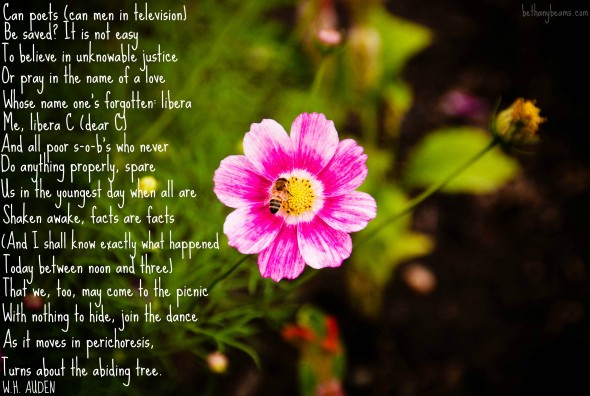Compline is the last time of prayer of the day in the canonical hours. In many monasteries, compline is the final act of speech before entering what is called “the great silence”. The remainder of the night into the next day is to be spent in confession, contemplation, and rest: all in silence. The quiet and stillness are broken only by lauds the next morning.
The quote above is the last stanza of a compline poem that Auden wrote as part of his Horae Canonicae, a reflection upon his own theology as framed by the daily times of prayer on Good Friday specifically. (As an aside, I encourage you to read it here or, better yet, to listen to it here.)
“It is not easy / to believe in unknowable justice / or pray in the name of a love / whose name one’s forgotten…”
Jesus did this on the cross. He believed in the unknowable justice that tore the cloth separating the Holy of Holies from the ordinary places, saved the criminal who believed, and caused the heart of the mother of God to break for her firstborn son. And he prayed in the name of a love whose name he had forgotten, saying, “My God, my God, why have you forsaken me?” He did it for all us poor s-o-b’s who never do anything properly, so that we can come to the picnic with nothing to hide.
And so that we can all dance together.
But for now we must sing our last songs of the day and then go to sleep, mourning in silence. Tomorrow we wait to be shaken awake. Because the answer to Auden’s question above, “Can poets (can men in television) / be saved?” is a resounding yes: on Good Friday we just don’t know it yet.
*
There isn’t much that’s original to me in this blog post. The Horae Canonicae is one of my favorite poem cycles; Auden has said more than I could ever want to about Good Friday, and said it ever so much better. Please do go read it and/or listen to the BBC radio broadcast recordings – I promise it is worth your time.
